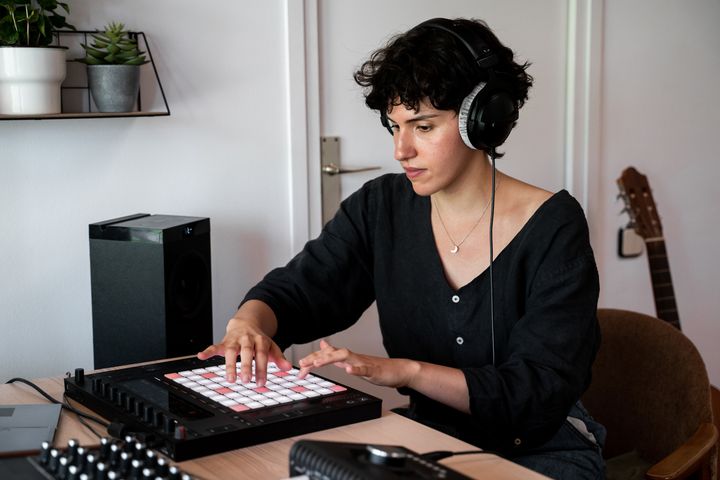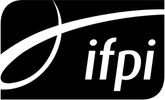New report: Gen AI could cost Danish music industry €921 million by 2030 - unless political action is taken
The consequences of the rapid development of artificial intelligence for the Danish music industry have now been mapped in a new report. Emerging AI services capable of generating complete music tracks from simple prompts are poised to consume large portions of the economy that currently sustains professional musicians. If the current trajectory continues, Danish music faces a historic revenue loss of 28 percent by 2030 - amounting to a total loss of approximately €921 million in the years leading up to 2030. Koda and IFPI Denmark are each calling for political action to ensure a strong and sustainable music ecosystem in Denmark.

Danish music is facing a serious economic threat due to artificial intelligence. This is the conclusion of a new report from the rights management organisation Koda and the industry association IFPI Denmark.
According to the report, prepared by HBS Economics and referencing a similar analysis from the international rights organisation CISAC, the current development in AI creates a distorted and unequal competitive environment between human-created music and fully AI-generated music. This imbalance could lead to significant revenue losses for the Danish music industry. In 2030 alone, fully AI-generated music is expected to result in an annual revenue loss of approximately €271 million - equivalent to 28 percent of total revenue.
Moreover, AI services are being trained on copyrighted music created by Danish music creators without permission or remuneration.
Koda and IFPI: AI must be developed responsibly and with respect for artists’ rights
Considering the new report, Koda and IFPI emphasize that this is not about opposing AI, but about promoting responsible AI development with a focus on transparency, permission, and fair compensation.
Nicky Trebbien, Director of Legal & Politics at Koda, states:
“These are alarming figures revealed by the report. And they stem from the fact that AI services are deliberately exploiting music creators’ livelihoods - without permission and without payment. On this unlawful foundation, they have built services capable of generating music that directly competes with the very human-made music that forms the basis of their business. That is unfair, unethical, and constitutes distortion of competition - it is not innovation,” says Nicky Trebbien, and continues:
“If more than a quarter of the economy disappears from the value chain, the entire fabric of the musical ecosystem begins to unravel. It becomes increasingly difficult to sustain a livelihood as a music creator, and we risk leaving the creation of future music to tech companies instead of real people with something meaningful to express. We do not believe this is acceptable for us as a society. That’s why political action is needed now - to establish proper regulation of AI services and to safeguard the financial foundation for Danish music.”
Rikke Johan Bak, Director of Communications and Public Affairs at IFPI Denmark, states:
“This report documents for the first time the real economic threat to Danish music from fully AI-generated music. We’re not talking about future scenarios, but a development that is already underway. It is therefore crucial that we actively ensure responsible AI development where the rights of music creators are respected - otherwise, the foundation of the Danish music economy will be undermined.”
Denmark should take the lead
Based on the report’s conclusions, Koda and IFPI Denmark call for the establishment of clear and responsible frameworks for the use of generative AI in the music industry. This is not about stopping AI, but about ensuring that development occurs with respect for artists’ rights and the sustainability of the music economy.
Koda and IFPI Denmark urge the government to use Denmark’s upcoming EU presidency to establish clear rules, including requirements for explicit permission from rights holders and transparency from AI companies when using music to train their models and offer AI services. As with all other uses of music, license agreements must be made to ensure fair compensation.
On 18 September, the Ministry of Culture’s conference on copyright and artificial intelligence will focus on precisely this issue. Experts and rights holders will discuss the legal challenges and possible solutions for future AI regulations.
Key figures from the analysis: Danish figures (HBS Economics):
- Revenue in 2024: €853 million
- Expected revenue in 2030 without AI: €966 million
- Expected revenue in 2030 with AI: €695 million
- Annual loss in 2030: €271 million (28%)
- Accumulated loss from 2025 to 2030: €921 million
Kontakter
Sira BerryInternational Communications Consultant
Tlf:+4526968464svb@koda.dkVedhæftede filer
About Koda
Koda is a Danish non-profit collective rights management organisation representing 52,000 composers, songwriters, and music publishers. Committed to securing fair remuneration for its members whenever their music is used, Koda also works actively to promote a music industry that is socially, environmentally, and economically sustainable.
Følg pressemeddelelser fra Koda
Skriv dig op her, og modtag pressemeddelelser på e-mail. Indtast din e-mail, klik på abonner, og følg instruktionerne i den udsendte e-mail.
Flere pressemeddelelser fra Koda
Ny rapport: Kunstig intelligens vil koste dansk musik 6,9 milliarder frem mod 2030 – hvis ikke der kommer politisk handling17.9.2025 06:00:00 CEST | Pressemeddelelse
Konsekvenserne for den danske musikbranche ved den hastige udvikling inden for kunstig intelligens er nu blevet kortlagt i en ny rapport. Nye AI-tjenester, der kan generere fulde musiknumre ud fra simple prompts, vil på få år spise store dele af den økonomi, som gør det muligt at leve af at lave musik. Hvis den nuværende udvikling fortsætter, står dansk musik til et historisk omsætningstab på 28 procent i 2030. I årene frem til 2030 betyder det et samlet tab på ca. 6,9 milliarder kroner. Koda og IFPI opfordrer hver især til politisk handling, hvis vi fortsat skal have et stærkt og bæredygtigt musikliv i Danmark.
Koda om anbefalinger fra AI-ekspertgruppe: Stærkt udgangspunkt – men det haster med politisk handling15.9.2025 08:25:25 CEST | Pressemeddelelse
En ekspertgruppe nedsat af kulturministeren har netop afleveret sine anbefalinger om, hvordan ophavsretten kan beskyttes i mødet med kunstig intelligens. Kodas juridiske og politiske direktør kalder anbefalingerne et stærkt udgangspunkt, men understreger, at det haster med politisk handling, hvis musikskabernes rettigheder skal sikres.
Europæiske kunstnerorganisationer i fælles opråb: ”Nyt AI-kodeks underminerer ophavsretten.” Koda opfordrer den danske regering til at gå ind i sagen.31.7.2025 14:32:38 CEST | Pressemeddelelse
»En spildt chance.« Sådan indleder 40 europæiske rettighedsorganisationer for kunstnere og kreative erhverv i hele Europa en fælleserklæring, hvori de retter en skarp kritik mod EU-Kommissionens nyligt offentliggjorte AI-pakke, der kommer som et led i implementeringen af AI Act. I fælleserklæringen advarer organisationerne EU om, at man risikerer at underminere grundlæggende retsprincipper.
Koda lancerer sin første rapport om bæredygtighed: Et vigtigt skridt i Kodas indsats for et stærkere og mere bæredygtigt musikliv1.7.2025 06:00:00 CEST | Pressemeddelelse
Koda offentliggør i dag sin første rapport om organisationens arbejde med bæredygtighed – et vigtigt skridt i arbejdet for at skabe en mere retfærdig, inkluderende og klimabevidst musikbranche. Rapporten dokumenterer Kodas indsats og resultater inden for seks strategiske områder og skal understøtte Kodas systematiske tilgang og gennemsigtighed i arbejdet med bæredygtighed.
Koda Strengthens International Engagement Through CISAC Board Appointment29.5.2025 12:41:39 CEST | Pressemeddelelse
Koda and CEO Gorm Arildsen join the board of CISAC – the world’s largest network of authors’ rights organisations – marking a strong Nordic voice in the global music industry.
I vores nyhedsrum kan du læse alle vores pressemeddelelser, tilgå materiale i form af billeder og dokumenter samt finde vores kontaktoplysninger.
Besøg vores nyhedsrum
